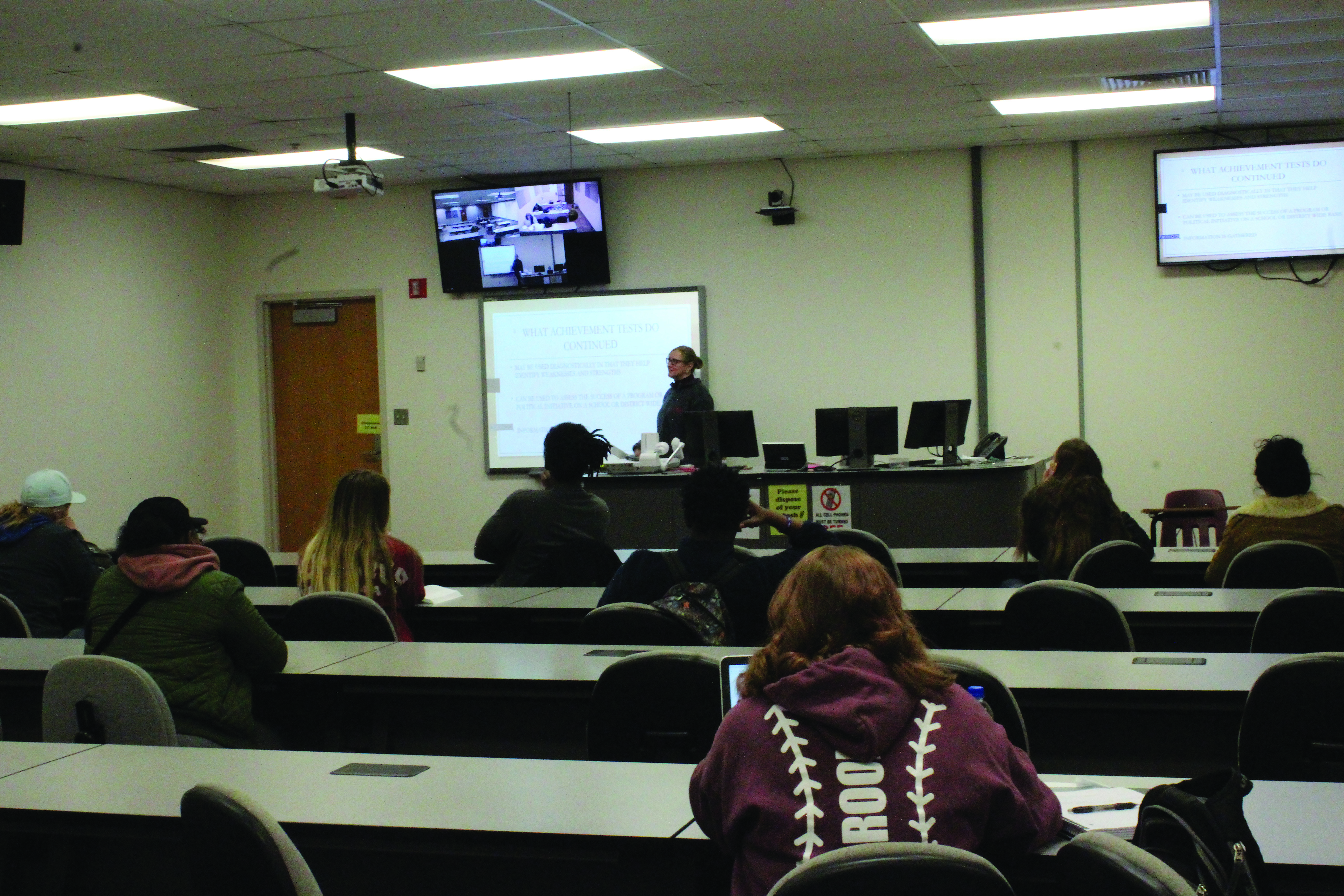By Caitlyn Pray
Student Reporter
For freshmen, that first semester of college is really a make-it-or-break-it trial run.
Some students bounce back once the new year starts, but for others, they never quite make it back after Christmas break.
“In many cases, one in three first-year students or more won’t make it back for sophomore year,” U.S. News said. “The reasons run the gamut from family problems and loneliness to academic struggles and a lack of money.”
Whatever reason there may be for students returning to college for a second year, statistics also show that the dropping out usually shows over the course of Christmas break. Jasmine Seevers, a sophomore crop and soil sciences major at Langston University, says the pressure of college is what drove her to leave after her first semester at Northwestern.
“I personally felt overwhelmed going into the whole college experience,” Seevers said. “Winning Miss Cinderella, I knew I had to maintain good grades, but I was given a pretty large amount of class work that was giving me so much anxiety and stress. Even walking to my classes would make my heart race because I’d think, ‘Is there something I’m forgetting or not getting done?’ Ultimately, it was just too much, so with the help of my family, I made the hard decision to leave college, the path that everyone says will make you succeed in life. After that, I took a year off which helped me really focus on what I want to do for the rest of my life. Northwestern was definitely a new beginning for me, however, it wasn’t the right one.
However, I can proudly say a family back in Alva, growing up around that town and the scholarships received, Northwestern is still a college that wants to make you feel like you’re one of their own.”
Although Northwestern has a retention rate that is notably higher than average and overall good according to student success coordinator Andrea Lauderdale, no college or university—not even Columbia, Stanford or Harvard—is without this problem.
“You know, I think that’s kind of an ongoing issue for colleges in general,” Lauderdale said, referring to spring enrollment being lower than the previous semester, “I’ve looked recently at a list of retention rates for colleges from the fall, and a majority of them are down; that’s just the way it is. We are not down as much as many of the other colleges. I know we’re doing okay. Even though the numbers have gone down and it might look a little scary, it’s not. I feel like it’s a trend—a state-wide trend. We’re not in bad shape.”
Recent numbers from the University Relations office prove this point.
Northwestern appears to be tightening the gap between number of students in the fall to spring semester. In 2015, statistics showed approximately 200 students did not enroll in the spring semester for various reasons, while in recent years that number for dropping out has dwindled at approximately 30 to 40.
The 30 to 40 students still remain vastly important to Northwestern, though, and for Lauderdale she will do all in her power to help students succeed and return at Northwestern.
“I want them [students] to come to me so we can solve the problem before they feel like they have to leave,” Lauderdale said. “I work with some students who are struggling, or wondering where they can get help for something, or they’re not liking something and they’re thinking about transferring, and in each case I want them to contact me first. I’m not going to make them stay or necessarily change their mind, I just want to solve the problem before they leave. That’s a retention strategy that we’re picking up is just sort of personalized retention, because I don’t want to do across-the-board lectures or whatever. If you have a question or a concern, I want the student to come talk to me so we can solve it before it reaches the point that they feel like they have nowhere else to turn and they just have to leave.”
Despite Lauderdale’s personal dedication to her students and their success, not all students take her up on her invitation to help or enroll without a hitch, and thus Lauderdale has also placed retention strategies in place.
“As far as strategies go, we’re trying to incentivize enrollment, which we’re needing ideas for that too. We’re trying things like Free Food Fridays which we tried last fall, and is where you show your proof of enrollment slip and get free food—just things that gets kids out and encourage them to turn their enrollment slips in rather than them trying to get them in at the last minute. We’re hoping that will then help us gauge better what our numbers look like instead of waiting until the semester starts and enrolling, which makes it hard on us to know who to talk to or try to go after. Also, we’re trying to get reasons from the kids that don’t come back. We try to talk to them and track them down and figure out why, so if we can help to get them back we do.”
Looking forward, Lauderdale said they are already on the ball for fall 2019 enrollment that will open soon.
“On enrollment day we’re doing the food truck theme again,” Lauderdale said. “We have food trucks come to campus on March 26, which is just another way of incentivizing enrollment on that day, and to get people outside and to enjoy some different food.”

